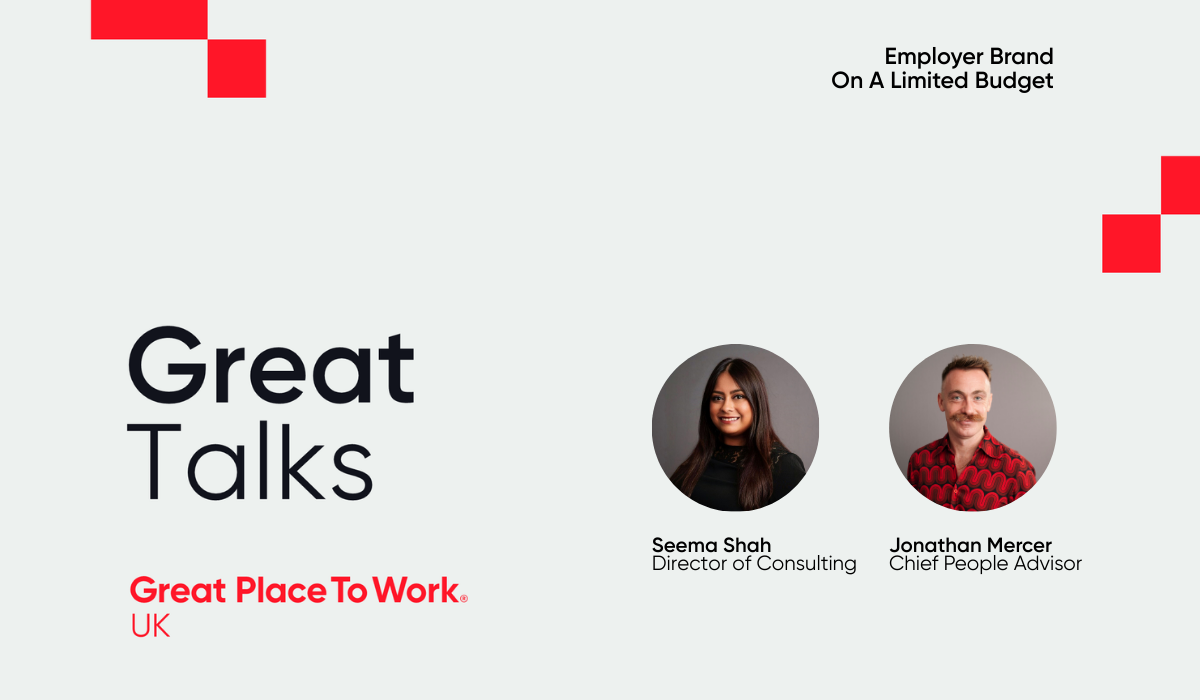Reliable and trusted leadership is crucial for enduring difficult times. Here’s how you can maximise the trust-building capabilities of your managers, so they can help you create an environment where every employee wants to give their best to your organisation.
Earlier this week, I was on a Zoom meeting with a senior leader from a well-known global organisation.
It was clear from the outset that she was distracted and struggling with an interaction she’d had with her leader.
“Do you want to talk about it?” I asked her. The situation she described is one many of us have faced before: Her manager had electronically denied a request she submitted. There was no phone call ahead of this to discuss the reason; no explanation for the denial. She was clearly deflated.
“I’m a senior leader in this organisation,” she started. “You’d think he would trust me enough to approve my request or at least show the respect of talking with me before he denied it! I guess I shouldn’t be killing myself for this place anymore.”
I’ve known this senior leader for several years. She's wired to be an over-achiever consistently giving more than what is expected. After our call, I couldn’t help but think about how this exchange with her leader would affect not only their relationship, but also how much extra effort she will (or won’t) be giving in future.
What a clear example of how the power and importance of trust in the workplace. When trust is lacking, interactions like this one suck the enthusiasm and productivity right out of your people, no matter how committed and driven they are.
The impact of untrustworthy leaders
When trust is low, many aspects of working life suffer:
-
Employees put less effort and attention into their work
-
Levels of collaboration and cooperation with others plummet
-
Employees care less about the success of the organisation
The associated business cost is clear, even if it may be difficult to quantify. In this example, trust is eroding at the most senior level of the business. If my client is having a less than desirable experience, how is this likely to show up in her leadership of others?
Tune into your employees, whenever and wherever.
Measure employee satisfaction through a quick poll, pulse survey, or research-backed assessments based on over 100 million employee responses from around the world.
Untrustworthy leaders damage perceptions of fairness
Employees' perceptions of fairness in the workplace are directly impacted by their experience of trust with their leader and the organisation. When employees don’t trust management, they’re more likely to feel pay, promotions and other workplace decisions are unfair.
In the absence of trust, we tend to create our own narrative of underlying agendas that influence decisions. But the reverse is also true – when we DO have trust in our leaders, we are more likely to:
-
Assume the best of intentions;
-
Give the benefit of the doubt when we don’t understand or agree with decisions;
-
Go above and beyond what is expected in our work.
When working in a high-trust culture, we’ve got more energy and enthusiasm to focus on the success of the organisation – even when uncertainty persists.
How to measure employees’ levels of trust in their manager
Among our 2020 World’s Best Workplaces™ we see that:
-
82% of employees consistently experience management delivering on promises.
-
83% experience management’s actions matching its words.
These statements within our Trust Index© employee survey serve as an indicator of the degree of trust people experience with their leaders. An analysis of employee comments of those experiencing trustworthy management describe their culture using words such as:
-
"Win/win"
-
"Supportive"
-
"Amazing"
-
"Fantastic"
-
“Caring”
Moreover, people who trust management and feel involved in decisions that impact them are seen to be:
-
8x more likely to deliver great customer service
-
9x more likely to want to stay a long time at the company
-
14x more likely to strongly recommend their workplace to others
Conversely, the employee comments we’ve seen from those people who don’t experience high-trust relationships at work include concerning phrases such as: "Emotionally drained", "Favouritism", "Poor decisions", "False promises" and "Overworked and underpaid". Trust is imperative to success – for both the individual and organisation.
How trustworthy managers can recession-proof your business
We know that trust takes time to build. Psychologist and author Brené Brown shares how she taught her daughter to think about trust using the simple ‘jar of marbles’ metaphor: Every time someone does what they say they are going to do; you add a marble to the jar. Each time someone breaks trust, you take a marble out.
The goal for all of us is to fill up each other’s jar. Here are some ways you can start:
1) Nurture Relationships
It's difficult to have trust with someone you don’t know well. When managers invest time in getting to know their employees as a person and a professional, this goes a long way to adding marbles to the jar.
Regular and frequent 1-2-1 time with employees (weekly or bi-weekly), even if only for 15 minutes, creates conditions to connect in a way that engenders trust.
Explore employees’ goals, motivations and interests, and ask the questions that will help you get to know them personally too. This will create the kind of connection that enables a stronger relationship.
2) Listen
Giving a person time and focus by being fully present and actively listening is one of the biggest demonstrations of respect, caring and acknowledgement that can be given.
We all have a basic human need to be heard and understood. Try not to appear distracted by emails or phone notifications during 1-2-1’s. Demonstrating curiosity and fully listening is the foundation for trust and relationships.
3) Maintain open communication
Taking the time to share information transparently and authentically is a show of respect and a powerful trust builder. It sends a message to people that they matter, that you value them, and that you are invested in their success.
Be sure to stick to time wherever possible. In a period of economic downturn, it’s likely everyone is feeling increased levels of stress and anxiety, especially when feeling like there isn’t enough time in the day to get things done. Keeping things brief and productive will reassure your employees that you consider their time to as valuable as your own – another sign of caring and support that boosts trust.
4) Involve people in decisions
When employees are involved in decisions that impact them, they are more likely to be engaged and committed to your success and that of the organisation.
When we can contribute and make a difference, we are more invested in the outcome. By creating conditions for employees to contribute their ideas, you enable people to feel valued and have a sense of purpose.
5) Reflect and adjust
What can your latest employee survey results tell you about employees' feelings towards their leaders? Are their clues about how you can personally support your department or individuals within the team to be more resilient, agile and innovative in navigating the rough waters we all are experiencing?
Trust can be an advantage over the competition, especially during an economic downturn. Taking time to reflect on our own behaviours helps us to rejig routines and practices to boost trust and give the business a better chance at thriving, even in the most challenging times.
If you want to measure the level of trust your employees have in their leaders, reach out to us about our employee survey and culture management platform.
This feature has been adapted from the original article by Laurie Minott, a Partner at Great Place to Work®. Laurie consults and coaches CEOs, CHROs and executive leadership teams on advancing business performance and culture change through strategies and solutions that create great workplaces for all.
Recommended for you








.png)





